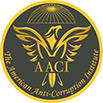The AACI and in cooperation with its Exam Unit develop anti-corruption certification programs. These programs are innovative in content, design, and delivery.

The AACI and in cooperation with its Exam Unit develop anti-corruption certification programs. These programs are innovative in content, design, and delivery.
Conducted in selected EU countries and the U.S., the primary objective of these programs is enhancing the anti-corruption intelligence of the board members: the target of these programs. Attendance is usually "by invitation."
The AACI coined it to mean the minimum, optimum knowledge a decision maker should have to avoid fraud and corruption intelligently. Such knowledge includes the proper blend of due diligence, internal control, anti-corruption, governance, decision making, process auditing (from a management perspective and duties) to avoid anti-corruption and fraud.
By avoidance, we emphasize the concept of deterrence and prevention. Corruption prevention is less expensive and better than any cure.
The Association of Certified Fraud Examiners (ACFE) 2016 Report to the Nations on Occupational Fraud and Abuse found that the median loss in the Middle East and North Africa amounted to USD 275,000 while the median loss in the U.S. is USD 120,000.
The report also found that corruption resulted in 57% of the fraud cases in the Middle East and North Africa. Cash on hand, billing, and expense reimbursements schemes used in the Middle East and North Africa were 19%, 15,2% and 11.4% respectively.
Globally, corruption, billing, non-cash, expense reimbursements, skimming, and cash on hand schemes amounted to 35.4%, 22.2%, 19.2%, 14%, 11.9%, and 11.5% respectively.
Though 21.6% of the corruption cases were found in the accounting department, 68.9% were found in the purchasing department. Therefore, most of the corruption perpetrations occur outside the accounting department.
As each entity is exposed to fraud and corruption, studies has consistently showed that organizations of developed countries lose an average of 5% of their revenues.
The Anti-Corruption Principles certification program is an intensive, disciplined, and case-analysis anti-corruption program. It targets decision makers and executive management of the Arab countries' organizations.
The primary objective of the certificate program is to ensure that management masters the principles of anti-corruption. This mastery will help them reduce corruption risks to manageable and acceptable levels, reduce waste and abuse of resources, enhance products and services quality, and improve the organization’s competitive position and increase your net income.
Agenda:
Design:
Content:
Welcome to The AACI training and events division, the leading global provider of management anti-corruption training programs. Our programs cater to your every need; from seminars to classroom-based programs, in-house bespoke courses to distance learning, and to measuring and quantifying your organization's exposure to fraud and corruption. We have anti-corruption programs for you and your organization.
The Anti-Corruption Certification Learning Programs, exclusively designed for and delivered to board of directors members, represent our premier content, design, delivery, and setting to support board members set the proper tone at the top. Attendance of these programs is "by invitation only."
Renowned industry experts and leaders in their field deliver our training programs under the direct supervision of The AACI Quality Advisory Committee; a subcommittee of The AACI Board of Advisors. We work with key professional and academic institutions to enable us to provide you with the highest quality programs and tools to excel.
© 2025 coursetakers.com All Rights Reserved. Terms and Conditions of use | Privacy Policy